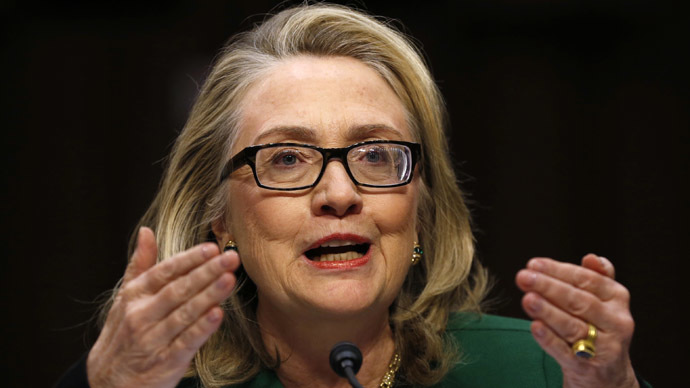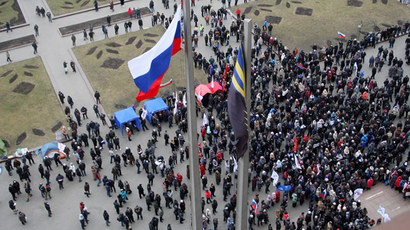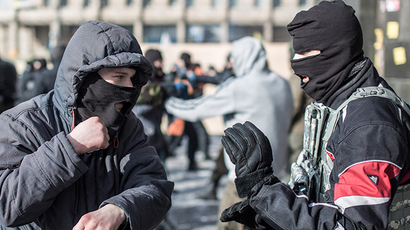Hillary Clinton compares Russian president’s actions to Hitler

Former secretary of state Hillary Clinton has likened President Putin’s stance on Ukraine to tactics used by Hitler in the 1930s. Clinton claims Russia is trying to “re-Sovietize” it neighbors in a move that “threatens [the] peace of Europe.”
In her first public statement on the situation in Ukraine, Clinton criticized the Russian president over his policy of protection of minorities in Ukraine as a guise for intervention. Targeting alleged Russia’s decision to issue passports to citizens in Crimea, Clinton compared the move to tactics adopted by Adolf Hitler.
“That is reminiscent of claims that were made back in the 1930s, when Germany under the Nazis kept talking about how they had to protect German minorities in Poland and Czechoslovakia and elsewhere throughout Europe," she said at a private event benefiting the Boys & Girls Clubs of Long Beach on Tuesday.
The Russian government has, in fact, offered passports to members of the Ukrainian riot police Berkut who have been threatened by lynch mobs, though later Russia’s Consul General in Simferopol, Vyacheslav Svetlichny, said he did not exclude the possibility of Russian passports being issued to Ukrainian citizens.
Following her speech, Clinton denied she made a direct comparison to Hitler, arguing that Putin’s actions were “reminiscent” of the rhetoric used by Nazi Germany when they moved on Poland, Czechoslovakia and other parts of Europe. The potential presidential candidate said she just wanted everyone to have a little “historic perspective.”
“I am not making a comparison, certainly. But I am recommending that we perhaps can learn from this tactic that has been used before," she said. Clinton added that Putin’s policy of “re-Sovietizing” the countries surrounding Russia is having a negative effect on development in Russia and threatens peace across Europe.
Clinton is not the first politician to make the comparison. Canadian Foreign Minister John Baird and his Czech counterpart, Karel Schwarzenberg, have both drawn parallels with Nazi Germany.
Kathryn Stoner, a Russia expert at Stanford University's Freeman Spogli Institute for International Studies, told AP that Clinton’s comparison was a little over-the-top. She said Putin “doesn't look like he is intent on spreading across the Ukraine and permanently occupying this area.”
Russian President Vladimir Putin dispelled fears of war on Tuesday in an official statement. He told assembled press that Russia is not going to wage war against the Ukrainian people and if Moscow takes a decision to use military forces, it “would only be to protect Ukrainian citizens.”
In response to US claims Russia was acting illegitimately, Putin referenced America’s history of military intervention.
“When I ask them ‘Do you believe you do everything legitimately,’ they say ‘Yes.’ And I have to remind them about the US actions in Afghanistan, Iraq and Libya, where they acted either without any UN Security Council mandate or through perverting a mandate, as was the case in Libya,” Putin said.
Russia regards Kiev’s self-proclaimed government as illegitimate and condemns the violent coup that led to its establishment on February 22.
Ukraine’s autonomous region of Crimea rejected the coup-appointed government and asked Russia for help and protection. The local parliament has scheduled a referendum for March 16 to decide on the region’s future. Crimeans will decide whether they want to remain an autonomous region in Ukraine, or become a region of the Russian Federation.














